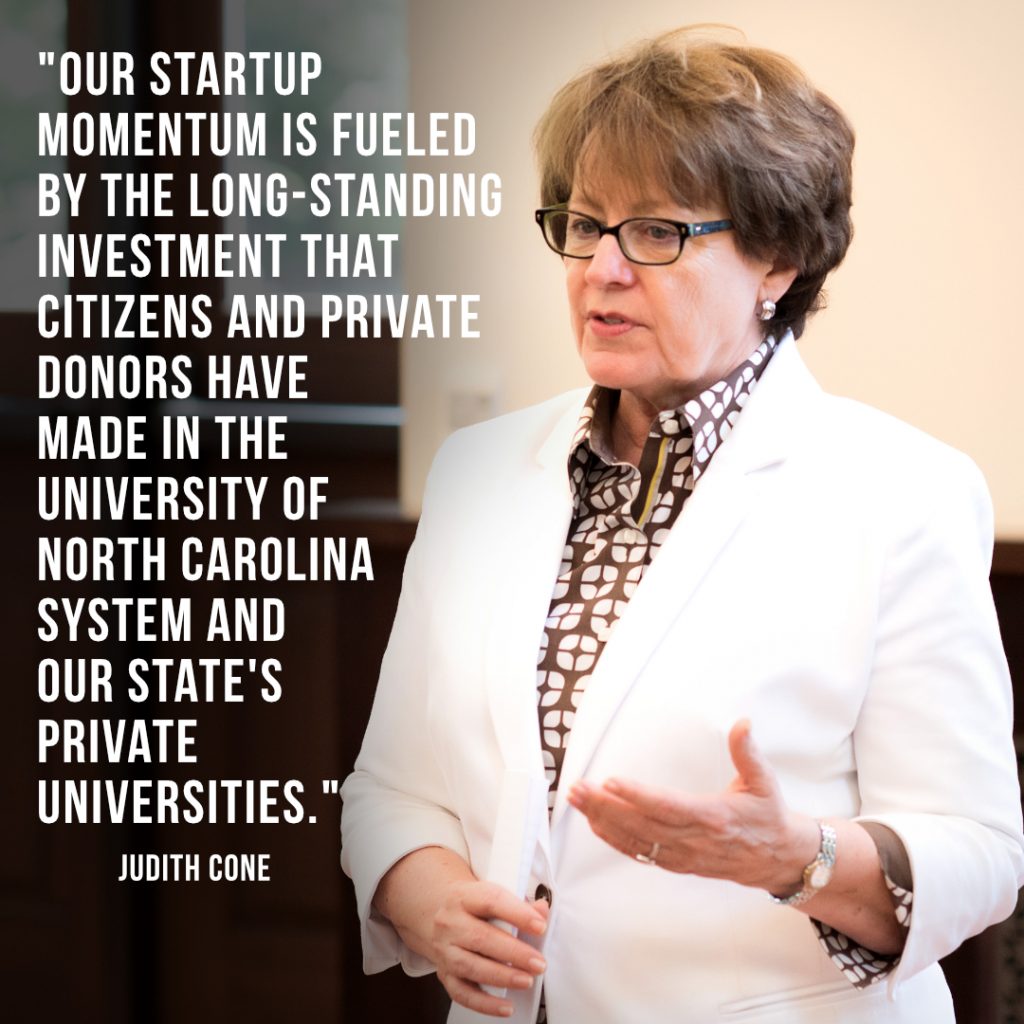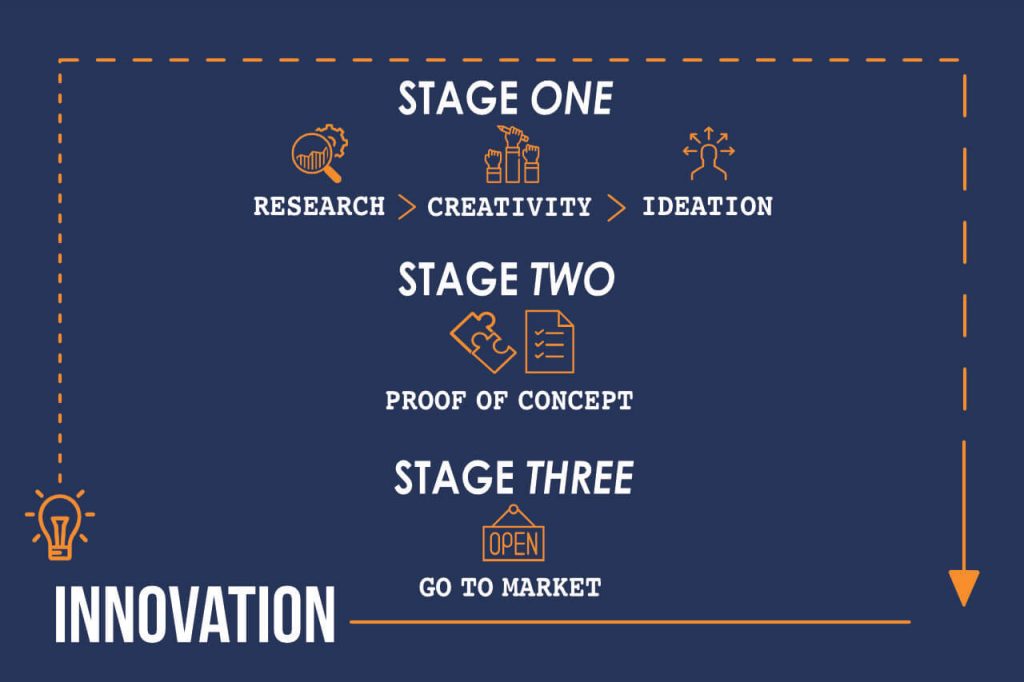


If one chose to personify different states based on their innovative potential, North Carolina would be the new wunderkind. The state’s economy, which has deep traditional roots in agriculture and textiles, is emerging as one of the nation’s most successful incubators in terms of bringing next-generation technologies and bio-medical advances to market. However, what sets the area apart isn’t where its innovations end; it’s where they begin: a super hub of innovation that’s flush with the intellect and expertise of a powerful cluster of global research universities and institutions: the University of North Carolina at Chapel Hill, Duke University, NC State University, Wake Forest University and the Research Triangle Institute.
These North Carolina universities have long attracted top-tier faculty from around the world. And they’ve also been a draw to companies that move to the state to take advantage of the rich talent pool of graduates. What’s new, however, is that as these universities are increasingly focused on more than sending promising graduates into the world to work at companies. They’re also launching high-potential startup companies into the market themselves. And with this increased focus on bringing university research and ideas into the market comes a distinctive network of funding opportunities – across the universities, region and state – designed to support new university ventures.

“North Carolina is a region that’s primed for new venture creation. Our startup momentum is fueled by the long-standing investment that citizens and private donors have made in the University of North Carolina System and our state’s private universities,” said Judith Cone, vice chancellor for innovation, entrepreneurship and economic development at UNC-Chapel Hill. “One of the keys for making university-born ventures successful is adequate program support and funding, which often begins on individual campuses. In North Carolina, this support has also expanded into a unique funding framework that involves cross-university collaborations and connections between university, state and federal programs.”
Many universities are finding ways to help their most inventive faculty bring their ideas and research to market. The goal is to help them make the greatest economic and social impact locally and around the globe. But launching a startup as a faculty member can be particularly difficult, especially in the early stages. Many face unwieldy processes, roadblocks and funding challenges – particularly funding-gap challenges.
A growing number of promising startups are built around innovations sparked by university research. In most cases, the innovation is very early and high risk. Continued development can occur within the university lab, but funding for technology development usually falls outside the scope of federal funding. The startup can seek funding from investors, but the risk is too high to attract much capital. Thus the funding gap.

So how does an early-stage, risk-prone startup secure significant grant funding or private investments? How can faculty move forward without the funds to prove their technology or concept is ready for larger investments? And how do faculty get the advice, mentorship and connections they need to launch and grow the company?
For most university-born startups, the answers start with programs inside the university. For example, at UNC-Chapel Hill, faculty startups work with KickStart Venture Services to help launch and accelerate their startups. KickStart provides coaching, mentoring, and connections to advisors and management. It also offers high-impact, early-stage funding for UNC spinout companies – filling the gap between when companies have the initial concept and when they will ultimately be mature enough to get a federal grant. The program’s KickStart Commercialization Awards provide up to $50,000 for startups to validate their technology, a key step to the next level of funding.
“Providing early-stage UNC startups with the guidance and financial resources they need to position themselves for federal grant and private funding is critical. It’s smart for the startups, universities, the state’s economy and its citizens,” said Don Rose, director of KickStart Venture Services. “If we allow our most promising companies to stagnate due to gaps in funding, we don’t just lose out on the future revenue and jobs that can be transformational to the economy. We also miss out on life-saving treatments.”



As many UNC-born startups and early ventures at other universities in North Carolina discover, programs like KickStart Venture Services are vital parts of a wider startup funding ecosystem. And it’s one that they must quickly learn to navigate. In fact, startups in North Carolina, and particularly those in the Research Triangle Park (RTP) region, find themselves in a unique position as they begin to pursue funding.
Few regions in the United States can replicate the academic-public-private intersection of funding and industry partnership opportunities that arise in the areas surrounding Raleigh, Durham and Chapel Hill: The campuses of three major global research universities UNC-Chapel Hill, Duke University and NC State University, are located just minutes from one another, which aids cross-institutional collaboration.
Each of these universities and their faculty startup founders have benefitted from state and federal loan and grant programs tailored for North Carolina businesses. NC IDEA and the North Carolina Biotechnology Center are prime examples. The region also includes a variety of private investment and venture capital firms – as well as a collection of global technology and bio-pharmaceutical companies like IBM, GSK, SAS and Siemens that are eager to tap into the research and development potential of university labs.
For North Carolina-based startup founders, the key is learning to find their way through the complex funding ecosystem and identifying the right opportunities at the right time. This involves taking a step-by-step approach and seeking out the most valuable resources at different stages along their innovation journeys.

Innovation Stage 1: Research, creativity and ideation. Ideas born at the university in faculty labs (Funding: small awards and grants available via universities and the local community).
Innovation Stage 2: Proof of concept. Startup and venture founders evaluate the market potential, advance technologies and develop prototypes to prepare for larger funding opportunities. (Funding: commercialization programs like KickStart Venture Services; university angel networks; university-affiliated investment funds like Carolina Research Ventures Fund)
Innovation Stage 3: Go-to-market. (Funding: SBIR, NCBiotech loans and, eventually, venture capital investment)
This article is part one in a three-part series that explores the funding landscape for startups founded by university faculty. Read part two and part three.